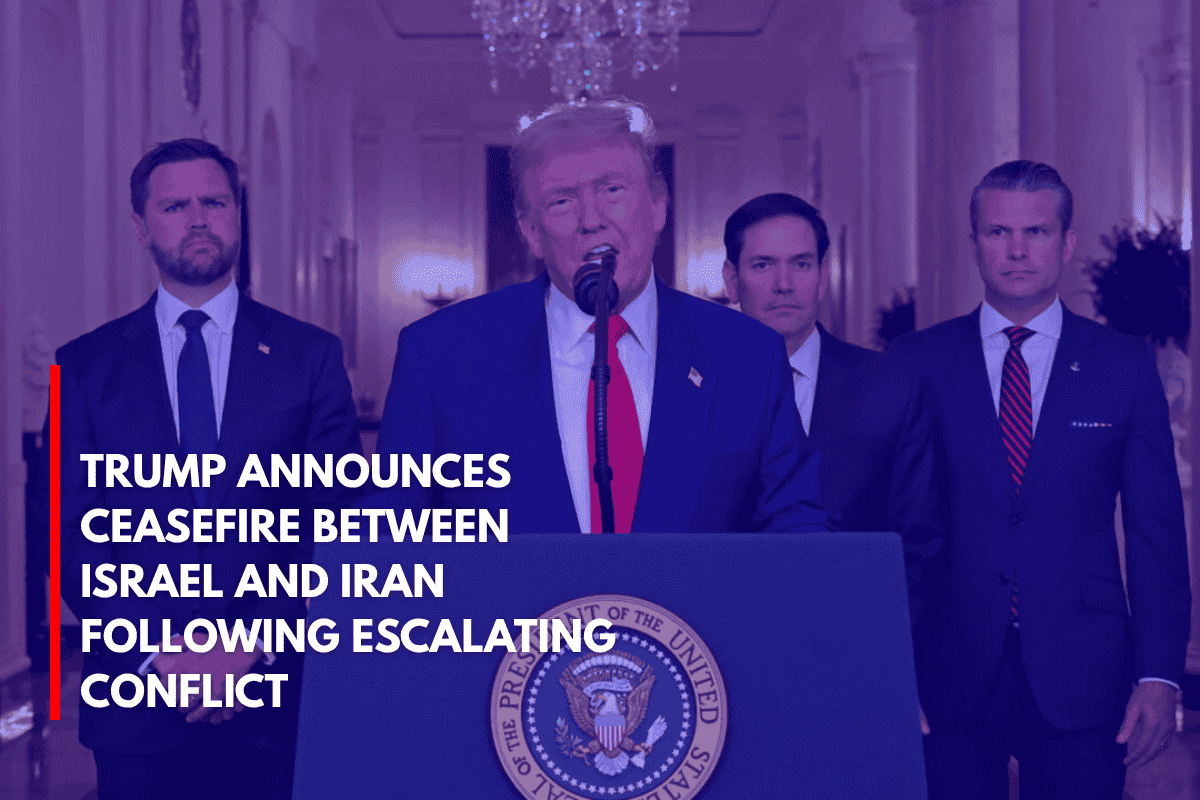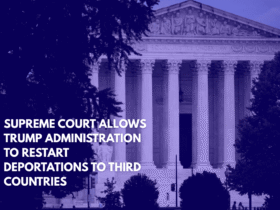Washington, D.C. – President Donald Trump announced on Truth Social early Tuesday that a ceasefire between Israel and Iran is now in effect, following a week-long conflict sparked by Israeli airstrikes on Iranian nuclear and military targets. The ceasefire was brokered with the involvement of the Qatari Emir and the U.S. government.
Just after 1 a.m. ET, Trump posted that the ceasefire between the two nations had officially begun, urging both sides not to violate the agreement. “IS NOW IN EFFECT. PLEASE DO NOT VIOLATE IT!” Trump wrote.
Israel and Iran Confirm Ceasefire Agreement
Shortly after Trump’s post, Israel’s government confirmed the ceasefire, stating that the country had agreed to the proposal in full coordination with President Trump. The Israeli government also stated, “Israel will respond forcefully to any violation of the ceasefire.”
At the same time, Iranian state television reported that Iran had also agreed to the ceasefire, and their forces had stopped their military operations against Israel.
Iran’s Foreign Minister, Seyed Abbas Araghchi, later posted on X (formerly Twitter) that Iran had ceased strikes at 4 a.m. Tehran time (8:30 p.m. ET Monday), although he added that Iran had not yet agreed to a complete halt of military operations.
Despite this, the ceasefire agreement is expected to bring an end to the immediate conflict between the two countries, though questions remain about the future of Iran’s nuclear program and the broader regional tensions.
U.S. Role in Brokering the Ceasefire
Trump’s announcement came after a weekend of escalating military action. The U.S. Department of Defense confirmed that over the weekend, the U.S. had struck three Iranian nuclear sites. Iran’s retaliatory missile strikes, which targeted a U.S. base in Qatar, caused no injuries due to the successful interception of most of the missiles by Qatari air defenses.
In his Truth Social post, Trump thanked Iran for providing early notice of their missile strikes, which he claimed helped avoid casualties. “I want to thank Iran for giving us early notice, which made it possible for no lives to be lost,” Trump said, adding that the attack from Iran was “very weak.”
The Human Cost of the Conflict
The violence has already claimed significant lives. Human Rights Activists reported that 950 people have been killed in Iran as a result of Israeli strikes, including a mix of military personnel and civilians. On the Israeli side, 24 people have died as a result of Iranian missile attacks.
The escalation in the region comes amid ongoing tensions over Iran’s nuclear ambitions. Israel’s campaign has primarily targeted Iran’s nuclear infrastructure, accusing the country of secretly working toward a nuclear weapon.
However, U.S. intelligence has assessed that Iran is not currently building nuclear weapons, despite growing pressure on Iranian Supreme Leader Ayatollah Ali Khamenei.
Trump’s Push for a Broader Nuclear Agreement
Trump’s administration has long sought a deal with Iran to limit its nuclear program, including the controversial issue of uranium enrichment.
Despite these efforts, Iran has repeatedly rejected U.S. demands to halt enrichment completely. Secretary of State Marco Rubio dismissed concerns over Iran’s nuclear development, stating that Iran already has everything it needs to build a nuclear weapon.
Meanwhile, Trump claimed that U.S. strikes had “obliterated” three key Iranian nuclear sites, including underground uranium enrichment facilities. Iran, however, downplayed the extent of the damage, calling the attacks limited.
What Happens Next?
Despite the ceasefire, the situation in the Middle East remains tense. The U.S. and Israel will continue to monitor Iran’s actions, particularly concerning its nuclear ambitions. The Trump administration will likely push for further diplomatic negotiations in the coming weeks, but Iran’s unwillingness to negotiate has been a sticking point.
With a fragile ceasefire in place, the focus now shifts to diplomacy and the future of Iran’s nuclear program, which remains a significant concern for both Israel and the U.S.











Leave a Reply